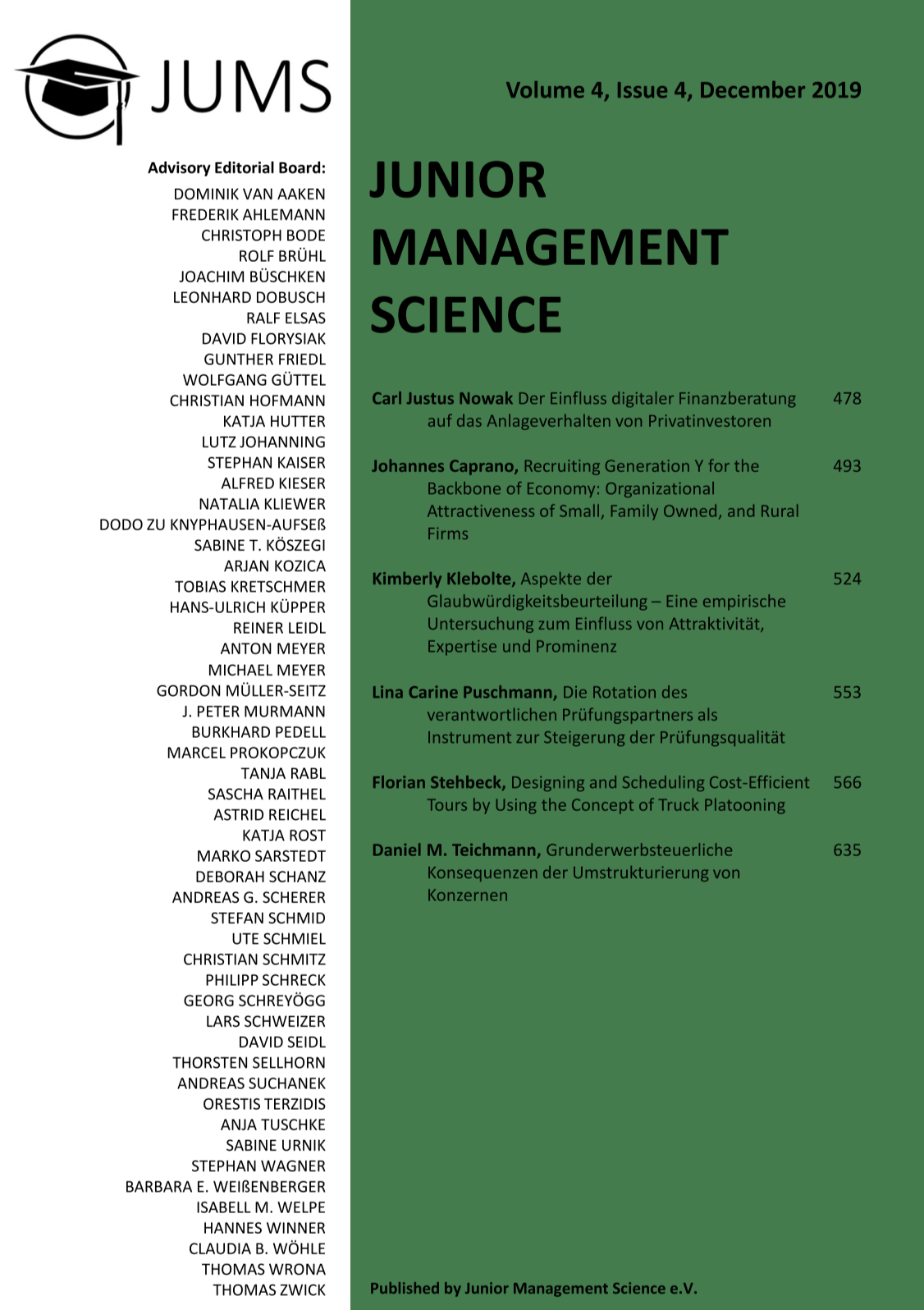Abstract
Despite their outstanding economic importance, small, family owned, and rural firms find it hard to attract talent. Upon initial contact with recruiting organizations, job seekers use any of their observable characteristics, such as size, ownership, or location to infer attributes of the employment offering. Based on this assessment, they may feel attracted to an organization and develop intentions to pursue the employment opportunity. Following behavioral psychology, the consistency between organizational attractiveness and job pursuit intentions is affected by the amount of job seekers’ direct experience with the firm type. For small, family owned, and rural firms, direct experience may be lower due to their relative anonymousness. The strength and direction of inferences made based on organizational characteristics as well as metacognitive assessments were tested using a vignette experiment. A sample of 200 Generation Y students and professionals rated fictitious firms based on their size, ownership, and location. The results show support of the indirect influence of these organizational characteristics on job pursuit intentions, mediated by employment attributes and organizational attractiveness. Family ownership led to positive evaluations while small size and rural location had a negative impact on job pursuit intentions. Another important contribution of this study is a validated two-stage implementation of firm location as a predictor of organizational attractiveness.
Keywords: Organizational attractiveness; family firm; SME; rural firm; hidden champion.

This work is licensed under a Creative Commons Attribution 4.0 International License.
Copyright (c) 2019 Junior Management Science e.V.

